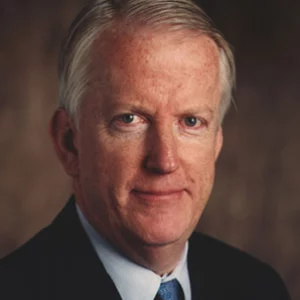Is there a leadership crisis? Are we really lacking executives to lead our organizations into the twenty-first century? Or are the specifications for the job changing: should we reexamine what kinds of leaders our organizations need?
The critical function in today's organization is the creative function. As change accelerates, organizations that are not continuously recreating their reason for existence will not survive for very long.
Whether a business is driven by the need to increase variety, or to segment the market more finely, or to cope with shortening life cycles, or to harness the possibilities of new process technologies, or to reposition against new competitors, the key task is to lead the organization to create products, processes, and services that have not existed before.
Routine work can eventually be broken down into individual, repetitive, and ultimately unchallenging tasks. Creative work requires harnessing the knowledge and thinking abilities of many people with different and highly specialized skills, in other words, professionals.
Most of our organizations today derive from a model whose original purpose was to control creativity. The Ford assembly line's virtue was that each man did one job the same way every time without distractions, interactions, or self-expression. Today's organization follows a similar blueprint in maintaining walls between its specialized functions: marketing, manufacturing, engineering, finance.
This suits many professionals just fine. Professionals of all types share a number of preferences: commitment to their specialty; insistence on autonomy and the right to choose their work methods; and resistance to direction and evaluation by anyone other than their professional peers. Our modern organizations often encourage specialists to pursue the goals of their specialties at the expense of the other functions, the firm, and the customer.
As a result, the biggest leadership challenge in business today may be leading specialized professionals from various functions to achieve the overall aims of the firm in a rapidly changing environment.
What kind of leaders are able to do this? Where might we look for examples?
In the world of classical music, the symphony is regarded by many as its most complex creation, requiring the integration of a large assembly of highly talented individuals for its performance. It has been suggested that the CEOs of the future may resemble the great conductors.
There is one major flaw in this analogy: no one gives a CEO the music he should play. But American music suggests another possible answer.
Duke Ellington was not an unusually gifted individual or musical theorist. It is disputed how well he could read musical notation. But measured by his output of original compositions, he may be the dominant figure in twentieth century music.
How is his prodigious creativity to be explained? From people who worked with him it appears he learned how to forge the divergent personalities of his jazz group into a single, highly creative instrument.
Members of his band have described how he learned to create on the run: he would offer up a scrap of an idea, suggest in general what he wanted, and then rely on his players to take cues from each other and to fill in their parts as they thought best.
His players were good but not without equal. He knew their quirks, their gifts, their problems, and he encouraged them to learn to do things they didn't think they could do. Some players came and went, but many stayed for years. They developed through their membership in the group, and they learned from each other. Most of all, their capacity for innovation grew as they built on their cumulative experience.
Finally, by performing live in the close atmosphere of a jazz club, audience reaction was immediately visible to all, and refinement of new ideas came fast. On piano, Ellington was in the middle of the process, and communication was instantaneous. The results were astonishing.
The winning organization of the future will look more like a collection of jazz ensembles than a symphony orchestra. Functional barriers will be reduced. Different specialties will work in more permanent teams around specific customer opportunities. Customer contact will be continuous. Information will be current, rich, and available to all.
Leaders will be in the flow, not remote. Teamwork and cooperation will increase at the expense of individual competition. Cooperative support will moderate anxiety and encourage risk-taking. Talented people will be attracted by the ability to see and influence the whole process, to learn from other knowledgeable people, and by the opportunity to create and grow.
The leaders who emerge from this environment will not look exactly like the old models. They will not necessarily excel at any one specialty. They will not have all the ideas. They will not be able to rely on exclusive decision-making authority, nor on the overwhelming force of personality, nor on a monopoly of information.
Leadership will flow to those whose vision can inspire the members of the team to put their best abilities at the service of the team. These leaders will create rather than demand loyalty; the best people will want to work with them. They will communicate effectively with a variety of people, and use the conflict among diverse points of view to reach new insights. They will exert influence by the values they choose to reinforce. They will make leaders of their team members.
There are no set pieces anymore. The distinctions between composer/conductor/performer are eroding. The new leaders are all around us.
